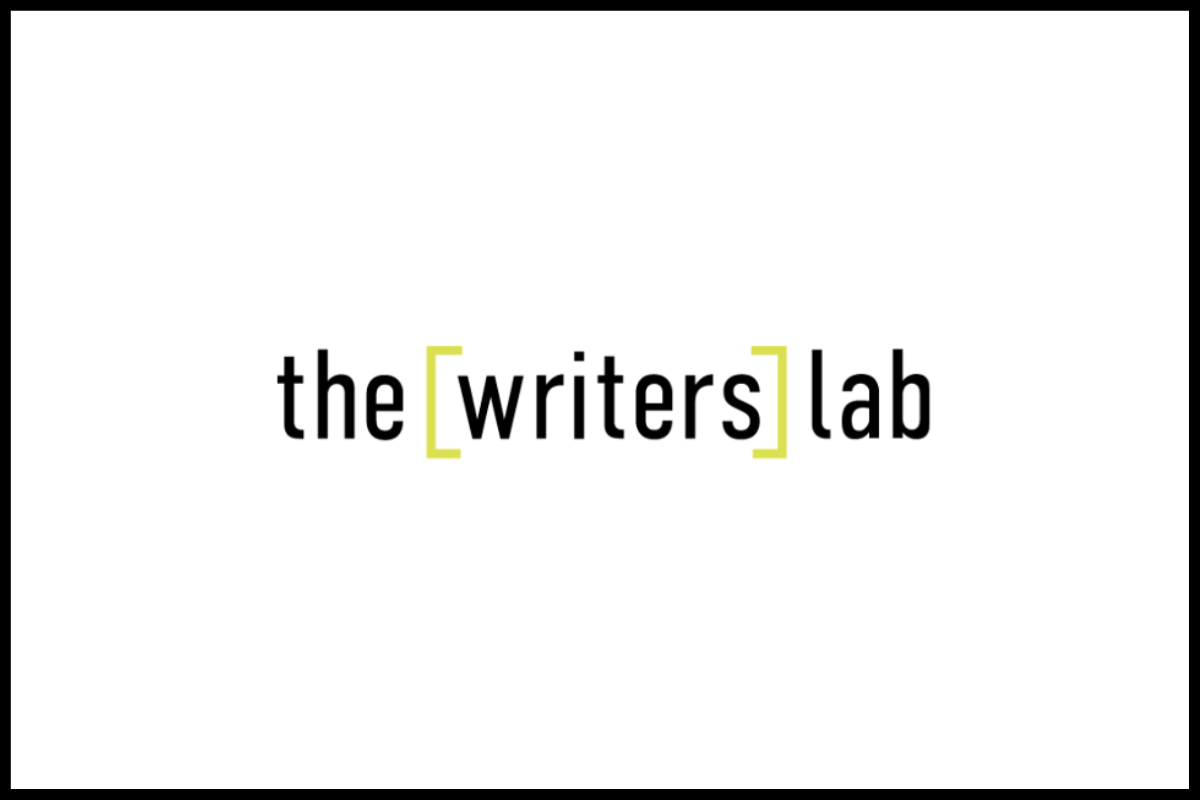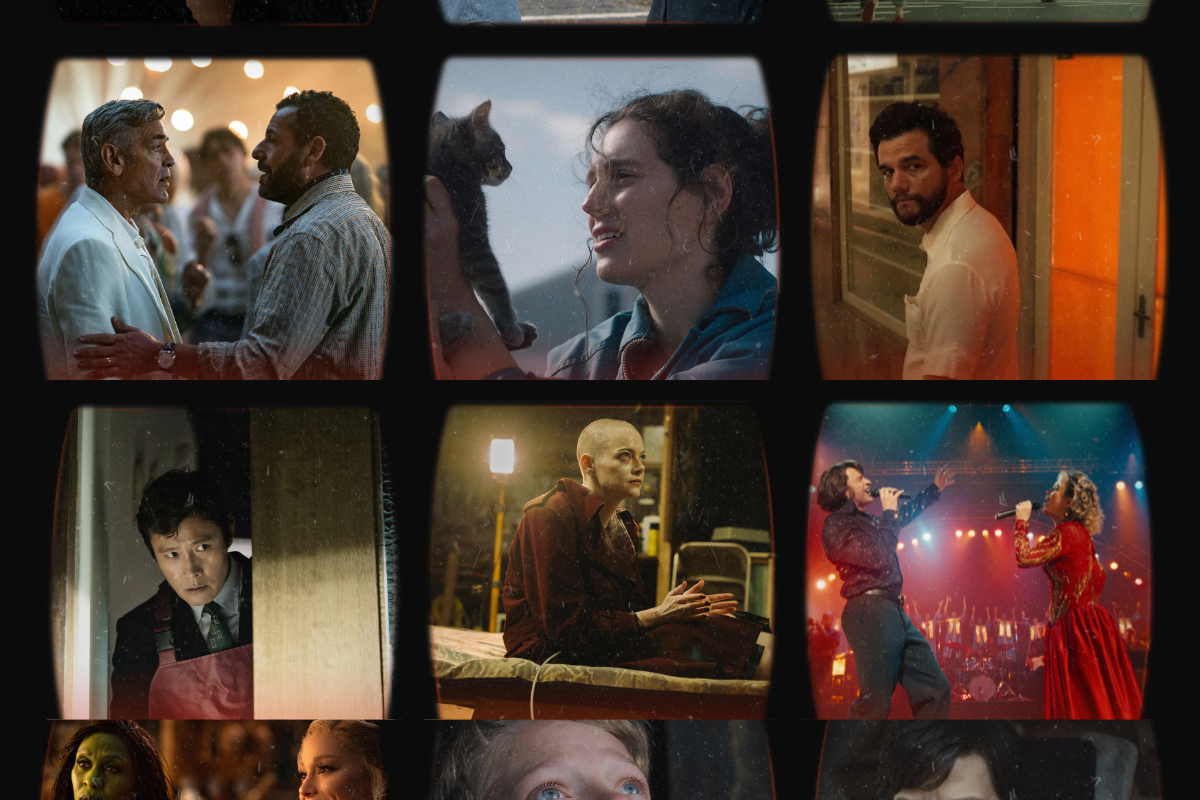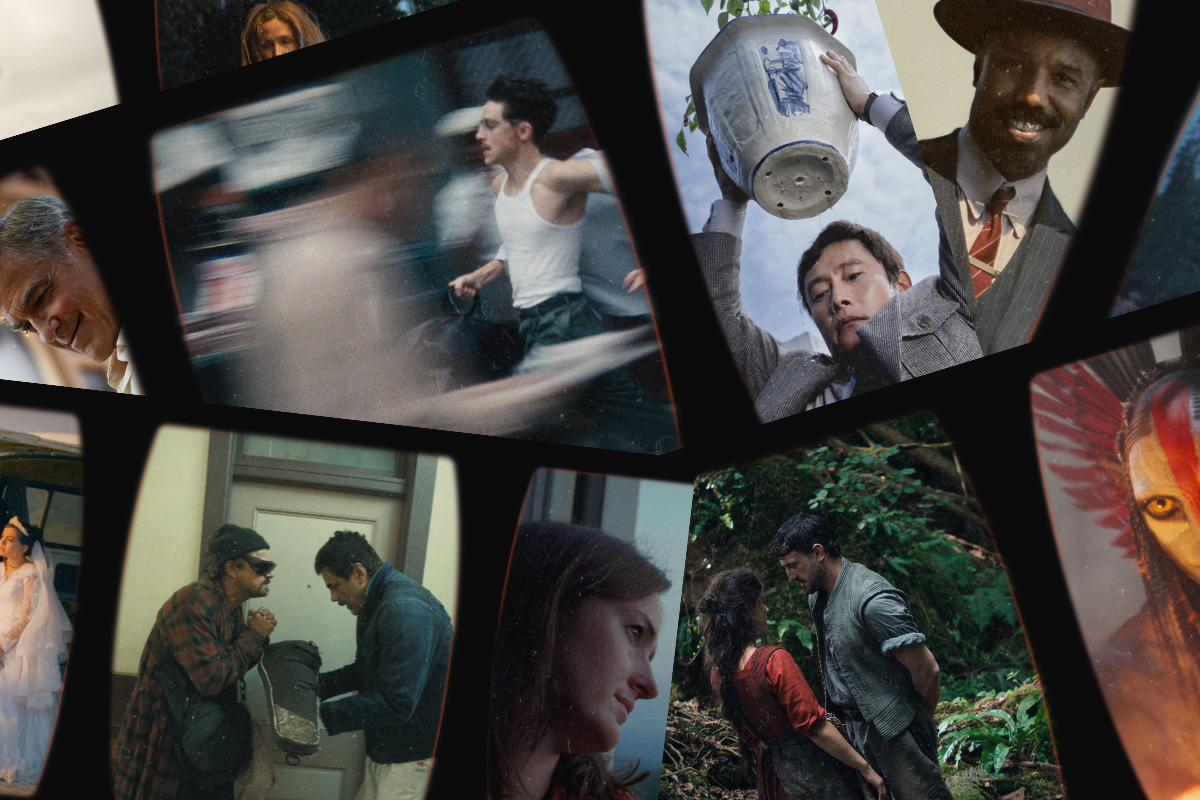Charlie Kaufman vs. ChatGPT
Why would we ever want an interloping digital poser to colonize our most basic need for expression?
“If ChatGPT can write a script like Charlie Kaufman, humanity is doomed.” Lately, I’ve been referencing my favorite screenwriter as something more than just the canary in Hollywood’s coalmine: I’ve been using his name to grab any sentience around me by its collective lapels and warn that if Kaufman can be bested by a bot, we are facing some form of imminent Armageddon as a species.
To bring my sky-is-falling foreboding down to Earth, let me first admit that the company I cofounded, ScriptHop, once dabbled in AI to help the industry navigate overwhelming script libraries – enough that our system read scripts better than IBM’s Watson and Google to summarize script info. Our AI was never generative, never designed to create narrative or judge it, and we pivoted to more humane (writer-facing) technologies, in part because we saw the landmine implications that lay ahead. I’m a writer myself, our ethos had to live up to the luminary scribes on our Advisory Board, and though Kaufman isn’t one of them, I wanted to live up to him.
With that admission off my chest, in a moment I will throw down the gauntlet at ChatGPT. I will summon Charlie Kaufman to be my John Henry and fight the machines in a veritable MMA battle of letters. I will pit AI against my hero because I have hopeful confidence it can’t touch a glove to him. Other public tests of ChatGPT have suggested it writes on a level that isn’t even Hallmark-worthy, so you’d expect exemplary ink like Kaufman’s would lay waste to any digital challenger. But with our sense that AI is getting smarter by the second, can this exhibition fight mitigate fears of the future?
Let’s be clear about what’s at stake: in spite of any WGA agreement, if AI can encroach on the nuance and depth of idiosyncrasy that Charlie Kaufman is celebrated for, I’d argue the human brain’s supremacy overexpression will have been lost. At that point, general intelligence, emotional intelligence, and even that ineffable portion that needs poetic abstraction to approximate it - this “soul” of ours - will no longer be all that special either.
With the value of the purse clear, we make our way toward the octagon for this rhetorical rumble, and I remind you why Kaufman is our champion, presenting his Tale of The Tape. First, his concepts aren’t derivative of anything unless he’s mocking the very notion of being derivative, such as in Adaptation. (ChatGPT functions largely on algorithms that derive narrative from pre-existing information. So Kaufman should have the equivalent of a reach advantage here.) Next, there’s the brilliantly layered story structure - dexterous physics weave disparate strings of plot and subplot into thematic cohesion. Third, and most important, there’s his ability to channel quirkiness into laser-honed art (rather than the idiosyncratic splatter so many lesser writers hurl at the canvas). Like Pollock, Kaufman has masterful control of his eccentricities. His characters present the most interesting case of what makes us human in the first place: it’s our quirks, the devil in our details...it’s what’s “off” about us.
As we near the ring, you protest, “There are lots of people who find Kaufman’s ambitions to be overly precious, his characters baroque.” You desperately offer to sub in pugilists who flaunt the grandiloquence of certain prestige pics...or Tarantino’s muscular dialogue...that’s your metric for screenwriting brawn. I wave off your nerves (and my own). Surely, Kaufman’s going to prevail with his rope-a-dope: though his stories come swinging with dark irony and stabbing cynicism, these are parries – defenses for a yearning lurking underneath the armor; his characters dart a vulnerable glance at Hope on the horizon when she isn’t looking. I’m sure ChatGPT can’t pull this complex feint off. You protest that I’m fanboying way too hard and this is all out of context for you. Exactly, I respond. Context will prove to be the entire point of this fight!
Kaufman may not look intimidating as he enters the ring, but after a stare-down at the nondescript metal hard drive, he gets into a fighter’s stance. The announcer’s belicose rant, the sound of the bell, and he strikes! He throws down pages from Adaptation, a script where one of Nicolas Cage’s characters (he plays twins in the movie) hilariously wants to break away from the yoke of Hollywood blockbusters and adapt a novel about flowers.
“Flowers?” you panic. “I was hoping for something...you know...visceral and violent!” Oh ye of so little faith, Kaufman’s badass because his writing never relies on lazy violence to compensate for a lack of dramatic conflict. Cage’s twin’s pivot into arty-flowery ambitions (adapting Susan Orlean’s novel The Orchid Thief) is Kaufman mocking the artistic pretentiousness he anticipates he’ll be criticized for. The twin’s pivot has ramifications for any of us confronting Hollywood’s mechanical business with artistic integrity: idealism can lead you as astray as commercial exploitation can. As we look on from the corner at these scenes which boast the two greatest performances by Nic Cage ever, I remind myself I’m not even normally a Nic Cage fan - but I freaking love Cage in Adaptation.
Time seems to slow as a spotlight falls on just four words from Adaptation, where one of Cage’s personas chides the other in a way that seems utterly bland on its face. The four words are: “Donald, don’t say ‘industry.’” Kaufman drops the mic.
You’re not laughing. In fact, you’re cowering in anticipation of AI’s counterattack. That’s because the line is out of context for you, which is the entire thesis for this throw-down: context is everything in writing. (The less the robots get this, the greater our chance of survival.) The four words, “Donald, don’t say ‘industry’,” are said after Cage’s other twin uses the word as if he’s discovered a secret password for Hollywood’s most velvet-roped door.
KAUFMAN (muffled by pillow): Screenwriting seminars are bullshit.
DONALD: In theory I agree with you. But this one is highly regarded within the industry.
KAUFMAN: Donald, don't say "industry."
A wallop of character juxtaposition is packed into those last four words. The hack brother is being scolded for glibly navigating Hollywood with cliches (relying on derivatives like an algorithm would); the intellectual, self-loathing, brother reveals his elitism, as well as his neurotic self-awareness, as he passive-aggressively reprimands his brother. “Kaufman” (named after the author) scolds the artless upstart for using a word that underscores the commercial machinery of the business. He’s rebuking an interloper for hijacking lexicon – for stealing a synonym from the business he hasn’t spent enough time in to earn.
To make things more audacious, the undeserving brother will soon be rewarded by Hollywood with a lucrative script sale precisely because he isn’t precious, because he isn’t careful or guarded like the intellectual who over-thinks his art - because he, like a fool, rushes in on opportunity (as quickly as he can exploit a word). But before all that, we’re already ensconced in context, embroiled in the dramatic momentum of the twins’ rivalry, the line registering in an inside baseball way for those of us who work in Hollywood, but also for people with a sense of humor (who pick up on that sardonic needle-sting of snobbery, the outrage that the opportunist has been unjustly rewarded - the resonant power of context).
All those subatomic particles of context unfurl from the line’s subtext. Without it, movies would sound mechanically monotone, characters robotically expressing their feelings in all-caps. Instead of “Donald, don’t say ‘industry,’” we’d have “I’M ANGRY AT YOU FOR BEING A POSER!”
ChatGPT appears stunned...but who can really tell? As we wait to see how it will respond, I believe we only have reason to worry if it can understand why one character chastising another with four words like this is fantastic. It’s only if AI can harvest words from the weeds of context that Kaufman winds up facedown.
It’s an embarrassing fact for ChatGPT that it requires a tag team partner. After setting up an account, I do a lot of the work. I spend time inputting story details, getting it to create an outline based on Adaptation. I input Kaufman’s characters’ backgrounds. I basically encourage it to do its plagiaristic best...am I committing a crime here? Chat’s response reveals it has become enlightened on what humankind has known all along about screenwriting: “Writing an entire script requires a lot of work.” It apparently can’t write a full script, instead offering a scene that contains the underwhelming mediocrity I expected, but that is also frighteningly competent (if seen from the perspective of a mediocre writer).
ETHAN: Hey Alex, how’s the screenplay coming along?
ALEX: Oh, you know, the usual. Just fending off studio contracts with one hand and fending off screaming fans with the other.”
ETHAN: (defeated) I just wish you'd use your talent for something more meaningful.
ALEX: (grinning) Maybe someday, when I'm sitting on a pile of money, I'll consider it.
ETHAN: (determined) Well, I'll keep writing stories that matter, whether they make me rich or not.
Its limitations become even more apparent when it applies comedy as subtly as if using a “Comedy Macro”...it assumes all hyperbole is funny, throwing it at the scene as if seasoning with rock salt.
ETHAN: (sarcastic) Ah, the life of a Hollywood titan. Must be so tough.
ALEX: (playing along) It's a burden, Ethan. I carry the weight of cinematic greatness on my shoulders.
Ethan closes his journal, his expression one of mock frustration.
ETHAN: (mocking) You're a real martyr, Alex.
Alex leans back, taking a sip of his latte with an exaggerated, theatrical flourish.
ALEX: (theatrical) Indeed, my dear brother. Now, what's this you were saying about art and meaning?
If this is comedy, it’s of the Saturday-afternoon-for-‘tweens variety. ChatGPT is, in fact, a hack. Reading through more of the scene, I’m relieved to have it confirmed that it doesn’t seem capable of understanding why Kaufman’s four simple words are funnier than the pie-in-the-face humor it hurls. Chat doesn’t know how to use context or subtext to draw out funny nuance. There are several simplistic exchanges arguing about art in similarly bland fashion, repetition suggesting it doesn’t get that pith is screenwriting’s optimal state. It’s not that it can’t deliver the concise, staccato rhythm writers tend to love, it’s that the actual content amounts largely to variations of the same meaning, so it sounds longwinded despite the delivery.
Though Kaufman cleans ChatGPT’s clock, I give it some credit: it writes instantly, whereas Kaufman needs time to plant seeds from which to grow nuance. Is it worrisome that AI can already do what it can? As others have pointed out, ChatGPT is already a threat to one special interest group in particular: human hacks. It’s a threat to the twin devoid of self-awareness...it’s a danger to human mediocrity and that’s honest-to-God alarming. There are countless writers who depend on mediocrity to make a living – countless viewers that actually love their mediocrity.
The inspiring thought is one that my friends take to heart: because ChatGPT depends on input, on derivation, it might spur writers to be less derivative, like Kaufman. It’s thanks not just to the author’s innovative ideas, but his own superpower and curse - his crushingly human self-awareness - that he’s capable of such hilariously hyper-aware, provocative idiosyncrasy that shines an entertaining light on our own flaws. He’s the ultimate reminder that it’s the bugs that make us interesting, the frayed wires that make character more perfect than AI currently understands.
If ChatGPT can ever really counter Kaufman, let’s start moving to a planet where the poetry of our existence is out of its Wi-Fi reception. I don’t want a digital twin. Why would we ever want an interloping digital poser to colonize our most basic need for expression – the very thing that helps us make sense of our bugs and frayed wires in the first place?
Scott Foster is co-founder & Creative Director for ScriptHop, the first interactive platform for marketing, managing, and delivering screenplays. A graduate of Columbia University's film school, he spent more than a decade at United Talent Agency, initially as an in-house story analyst, and ultimately as the Director of UTA’s Story Department. Scott has produced several feature films and continues to write while working for ScriptHop, which has just launched "The Gauntlet."







